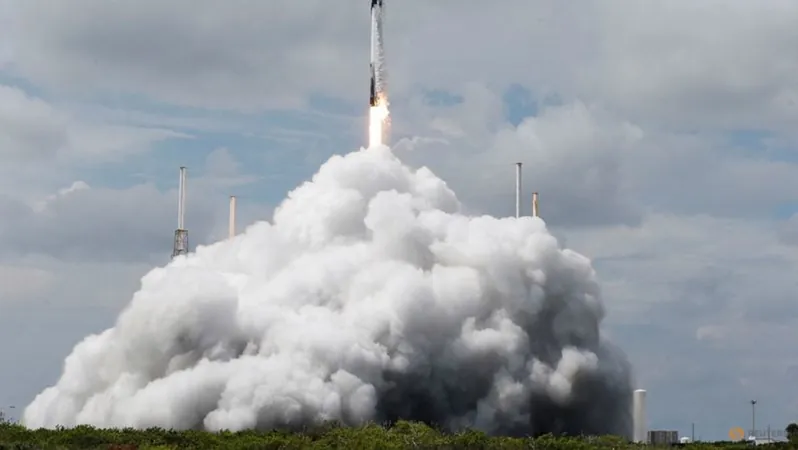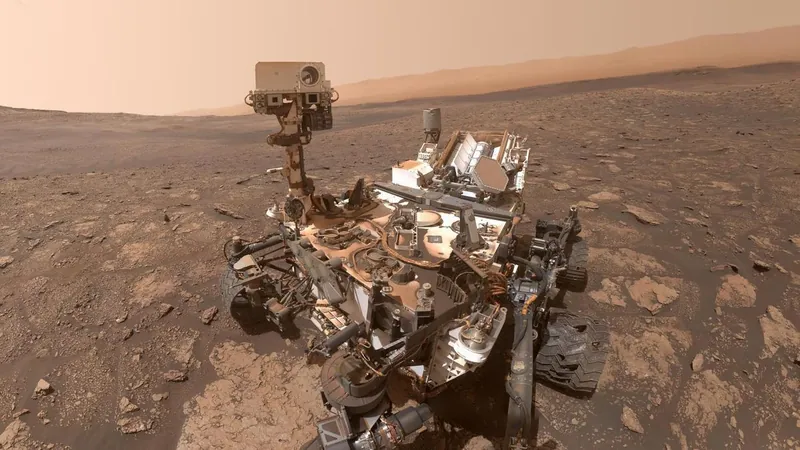
FAA Halts SpaceX's Falcon 9 Launches After Recent Malfunctions
2024-09-30
Introduction
In a significant development for aerospace enthusiasts and the commercial space sector, the U.S. Federal Aviation Administration (FAA) has placed a hold on SpaceX's Falcon 9 rocket operations following a troubling malfunction of its second stage. This suspension marks the third grounding of the rocket in just three months, highlighting mounting concerns over the reliability of one of the world’s most utilized launch vehicles.
Recent Incident Details
The latest incident occurred after SpaceX successfully launched two NASA astronauts to the International Space Station (ISS) on Saturday. Following the crew’s safe docking at the ISS, the Falcon 9 rocket’s second stage failed to execute a critical maneuver known as the “deorbit burn.” This routine procedure is intended to safely guide the spent rocket booster back to Earth, where it is typically discarded into the ocean. Unfortunately, the booster ended up falling into a prohibited area of the Pacific Ocean, raising safety concerns.
Company Response
SpaceX acknowledged the problem, stating, "The booster experienced an off-nominal deorbit burn. As a result, the second stage safely landed in the ocean, but outside of the targeted area." Fortunately, the FAA reported that there were no injuries or property damage resulting from this incident, but this does little to assuage the ongoing scrutiny facing the company.
Previous Failures
This recent failure follows two other significant mishaps over the past few months. In July, the Falcon 9 rocket was grounded after a second-stage failure led to the destruction of a batch of Starlink satellites, marking SpaceX's first major mission failure in over seven years. Just a month later, in August, another incident involving the rocket’s first stage not successfully landing did not impair the mission’s success but nonetheless drew FAA attention and led to further grounding.
Regulatory Challenges
The FAA's rigorous investigation is not only crucial for ensuring safety but also comes at a sensitive time for SpaceX. Tensions have been escalating between the agency and the rocket company concerning launch licensing regulations. SpaceX has voiced frustrations over alleged delays in the FAA’s processing of licenses, particularly for its ambitious Starship program, which is designed to push the boundaries of space exploration.
Industry Impact
Despite these challenges, SpaceX continues to lead the industry with an average of two to three rocket launches each week. The Falcon 9's first stage is designed to be reusable, enhancing operational efficiency, while the second stage remains expendable.
Looking Forward
Interestingly, the grounding of the Falcon 9 does not directly impact SpaceX's advancements with its next-generation vehicle, the Starship, which has undergone a series of ambitious test flights since its development began. As SpaceX navigates these challenges, the world watches closely, eager to see how it will resolve these technical and regulatory hurdles and continue its pioneering role in space exploration.
Conclusion
Stay tuned as we follow this developing story and uncover what this means for SpaceX’s future missions!





 Brasil (PT)
Brasil (PT)
 Canada (EN)
Canada (EN)
 Chile (ES)
Chile (ES)
 España (ES)
España (ES)
 France (FR)
France (FR)
 Hong Kong (EN)
Hong Kong (EN)
 Italia (IT)
Italia (IT)
 日本 (JA)
日本 (JA)
 Magyarország (HU)
Magyarország (HU)
 Norge (NO)
Norge (NO)
 Polska (PL)
Polska (PL)
 Schweiz (DE)
Schweiz (DE)
 Singapore (EN)
Singapore (EN)
 Sverige (SV)
Sverige (SV)
 Suomi (FI)
Suomi (FI)
 Türkiye (TR)
Türkiye (TR)